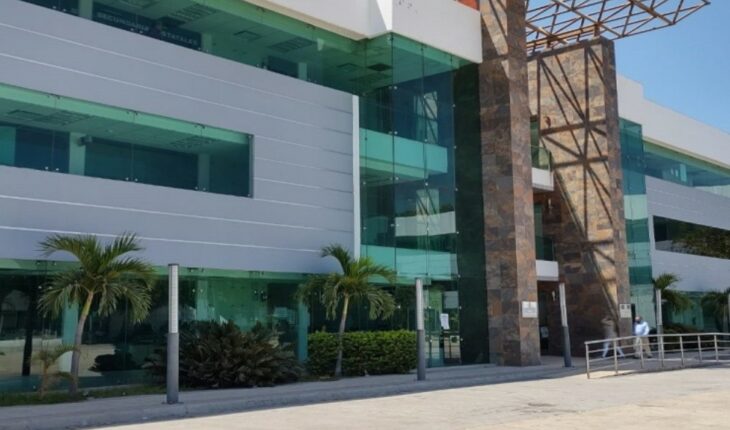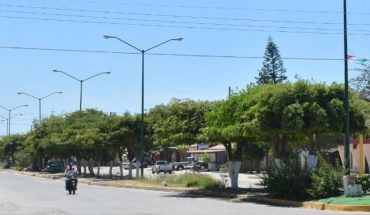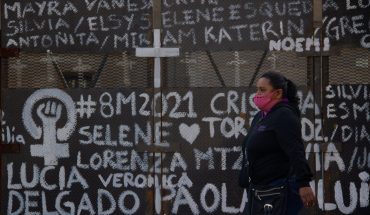Sinaloa.- Although the public education system cannot reject a minor with a disability because it would violate their human right; in practice, parents of children with hearing impairments, as well as students, have problems achieving integration into the classroom, said members of the deaf community in Sinaloa.First, they face stigma and lack of information, which is aggravated especially in rural areas by the lack of a diagnosis or economic resources. Attention In this way, the educational process is interrupted for children with deafness, who are relegated in the family and social dynamics when no one can teach them Mexican sign language or are not candidates for a cochlear implant. In addition, there is no state diagnosis or reliable statistics that allow us to understand the radiography of people living in Sinaloa with total deafness and with some type of hearing weakness, such as hearing loss or partial deafness. Even with the shortcomings, the budget situation improved this year for the special education department of the Ministry of Public Education in Sinaloa, Professor Nidia Aldana, who directs this area that operates with federal resources, told Debate. They are 25 million pesos authorized to operate in six months of 2022 against the previous fiscal year, which was one million 800 thousand pesos. Although about 12 million will be directed to students with outstanding aptitudes, a program that also runs this department. The official reported that the project for Sinaloa is to expand coverage so that they can also serve young people with deafness and other disabilities in Cobaes, which already happened a few years ago but was canceled. There are currently three options at the basic level to care for children with hearing impairments: 50 CAM, 208 Usaer and 10 CRIE. Depending on the severity and studies to the minor, it is channeled. Currently there are 287 children with hearing disabilities who are enrolled in the Public Education System in Sinaloa at the preschool, primary and secondary level. Diagnosis If the parents or guardians of a child with problems communicating have not yet had a diagnosis, they can receive a comprehensive assessment from specialists for free in Culiacán, said Professor Nidia Aldana. The indicated site is the Regional Center for Child Development and Early Stimulation (Ceredi) in Culiacán. This institution is part of the health services of the State Government. They are cared for by a pediatrician, nutritionist, psychologist and speech therapist. Nidia Aldana, head of Special Education in Sinaloa, reported that teachers throughout the state and rural area should help channel a child who has not yet received a diagnosis in case of any suspicion regarding disability, for example, deafness, but also others such as autism or Asperger’s. He explained that teachers can suggest going to this institution in order to give a comprehensive follow-up to the health of the child and thus improve not only their education, but their quality of life, which is not mandatory. He indicated that there are even parents who prefer not to request the diagnosis, either for fear of stigma or for lack of economic resources to move to Culiacán. In case you are interested, the center is located on Blvr. Emiliano Zapata, in front of the Volkswagen agency, the phone is 667-499-9528. The person in charge is Dr. Eva Castro.
In Sinaloa, it is necessary to create public policies that have an inclusive perspective, explained local PRI deputy Connie Zazueta Castro, former director of the DIF. “We need, in addition to civic culture, that the three Powers implement affirmative actions that allow the inclusion of all people who have a disability,” said the member of the Family Commission. “It is important that educational institutions make a diagnosis to know how many children currently in Sinaloa have this disability and can be supported with an implant, as well as guarantee them an inclusive education,” he said. Inclusive actions are necessary, such as, for example, that in the areas of attention to the public of the three levels of government there are people who know sign language and can facilitate the procedures for deaf people, “said the legislator. He also reaffirmed that cochlear implant programs must be strengthened, since, due to their high cost in the market, which is around 500,000 pesos, approximately, they are not accessible to the entire population.” We cannot allow exclusion because of some kind of disability,” he said. With information from Leticia Villegas.Options for children with deafness Estudied in a Unit of Support Services to Higher Education (Usaer), there are schools that belong to this network. Resource and Information Center for Educational Integration (CRIE), there are trainings for teachers, parents and students. Children with total deafness can go to a Multiple Care Center (CAM) to learn sign language from an early age. The Data Place. The Department of Special Education is in the facilities of the Sepyc and SEP in Culiacán, in the Jaime Torres Bodet building, in the Plaza de los Valores. Contact. Blvr. Pedro Infante, Col. Recursos Hidráulicos, or call 667-846-4200 ext. 3250, 3251, 3252 and 3253. On May 5, Debate published an analysis table with people from the deaf community in Sinaloa, where they criticized the lack of public policies to favor their inclusion in educational activities. Among the proposals expressed is to increase access to Mexican sign language interpreters, especially as support staff in public schools so that children with deafness can access and better understand academic content, since in some cases parents are the ones who must hire or pay an interpreter for their children; in other cases, minors, when joining a regular school, have many learning difficulties. We recommend you read: Another proposal is to open a bicultural bilingual school in Sinaloa for students with hearing disabilities. Man falls with everything and truck to canal in Mazatlan
Public Education Must Include Children with Deafness in Sinaloa
May 14, 2022 |





